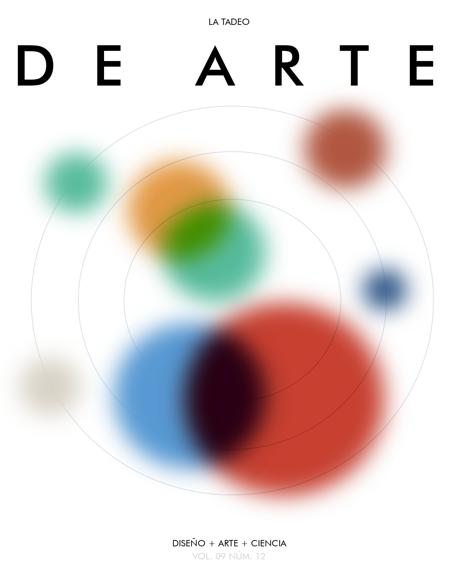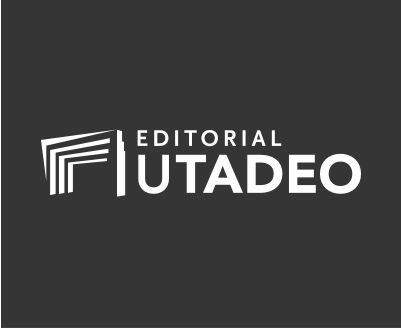
Esta obra está bajo una licencia internacional Creative Commons Atribución-NoComercial-CompartirIgual 4.0.
Esta obra está bajo una licencia internacional Creative Commons Atribución-NoComercial-CompartirIgual 4.0.
Resumen
This paper examines the anthropocentric orientation and critical view of technology as traced within the theological doctrine of Christianity, vis-a-vis the anthropocosmic and enabling, but less critical perspective, established via Confucianism. It then examines how these distinct traditional worldviews are amplified in the popular media of our contemporary milieu, that can then influence the development and reception of Artificial Intelligence today in different geographical locations. Through this comparison, this paper invites readers to locate invisible influences that constrict our a-priori assumptions by exploring and articulating previously occluded cultural perspectives within the context of media art. Thereafter, the arena of new media art is proposed as a conducive space and context upon which such inclinations can be observed, discussed, and experimented with, in view of collectively expanding and diversifying theories and discourses in the mainstream media art-world.
Citas
Bjork, Russell C. “Artificial Intelligence and the Soul.” Perspectives on Science and Christian Faith 60, no. 2 (2008): 95-102.
Brook, Timothy. “Rethinking Syncretism: The Unity of the Three Teachings and Their Joint Worship in Late-Imperial China.” Journal of Chinese Religions 21, no. 1 (January 1993): 13-44. https://doi.org/10.1179/073776993805307448
Brunner, Emmil. “Christianity and Civilization: Chapter 10 The Problem of Creativity.” The Gifford Lectures, 1948, https://www.giffordlectures.org/books/christianity-and-civilization-vol-1/x-problem-creativity.
Callicott, J. Baird and Roger T. Ames. Nature in Asian Traditions of Thought: Essays in Environmental Philosophy. SUNY Series in Philosophy and Biology. State University of New York Press, 1989.
Calugareanu, Ilinca. “Meet Erica, the World’s Most Human-like Autonomous Android – Video.” The Guardian, accessed August 24, 2023, http://www.theguardian.com/technology/ng-interactive/2017/apr/07/meet-erica-the-worlds-most-autonomous-android-video.
Domenico Quaranta. Media, new media, postmedia. Milano: Postmedia Books, 2010. https://rhizome.org/editorial/2011/jan/12/the-postmedia-perspective/.
Eisenstadt, Shmuel Noah. “Multiple Modernities.” Daedalus 129, no. 1 (2000): 1-29. http://www.jstor.org/stable/20027613.
Fung, Yu-Lan. “Why China Has No Science–An Interpretation of the History and Consequences of Chinese Philosophy.” International Journal of Ethics 32, no. 3 (1922): 237-63, https://doi.org/10.1086/intejethi.32.3.2377487
Garcia, David and Geert Lovink, “The ABC of Tactical Media,” Nettime mailing list archives, May 16, 1997, https://www.nettime.org/Lists-Archives/nettime-l-9705/msg00096.html.
Harvey, Graham. Animism: Respecting the Living World. New York: Columbia University Press, 2006.
Heidegger, Martin. The Question Concerning Technology, and Other Essays, vol. 12. Harper & Row, 1977.
Hui, Yuk. Art and Cosmotechnics. University of Minnesota Press, 2021. https://doi.org/10.5749/j.ctv1qgnq42.
Hui, Yuk. “Cosmotechnics as Cosmopolitics.” E-Flux 86 (November 2017), https://doi.org/10.5749/j.ctv1qgnq42
Hui, Yuk. The Question Concerning Technology in China: An Essay in Cosmotechnics. Falmouth: Urbanomic, 2016.
Hui, Yuk and Andreas Broeckmann, eds. 30 Years after Les Immatériaux: Art, Science and Theory. Lüneburg: meson press, 2015.
Kim, Yong-ok and Jung-Kyu Kim. The Great Equal Society: Confucianism, China and the 21st Century. New Jersey: World Scientific, 2014. https://doi.org/10.1142/8792
Li, Chenyang. “Confucian Perspectives,” in Encyclopedia of Science, Technology, and Ethics, ed. Carl Mitcham, vol. 1. Detroit, MI: Macmillan Reference USA, 2005.
MacDonald, Keza. “Being Human: How Realistic Do We Want Robots to Be?,” The Guardian, June 27, 2018. https://www.theguardian.com/technology/2018/jun/27/being-human-realistic-robots-google-assistant-androids.
Ni, Peimin. Confucius: The Man and the Way of Gongfu. Lanham: Rowman & Littlefield, 2016.
Paracka Jr., Daniel J. “China’s Three Teachings and the Relationship of Heaven, Earth and Humanity,” Worldviews: Global Religions, Culture & Ecology 16, no. 1 (January 2012): 73-98. https://doi.org/10.1163/156853511X617803
Pop, Susa, Tanya Toft, Nerea Calvillo and Mark Wright. What Urban Media Art Can Do: Why When Where & How. Stuttgart: avedition, 2016.
Shum, Heung-yeung, Xiao-dong He, and Di Li. “From Eliza to XiaoIce: Challenges and Opportunities with Social Chatbots,” Frontiers of Information Technology & Electronic Engineering 19, no. 1 (January 2018): 10-26, https://doi.org/10.1631/FITEE.1700826.
Schuurman, Derek C. “Artificial Intelligence: Discerning a Christian Response”. Perspectives on Science and Christian Faith. (2018)
Tu, Weiming. Confucian Thought: Selfhood as Creative Transformation, SUNY Series in Philosophy. Albany: State University of New York Press, 1985.
Tucker, Mary Evelyn. “The Relevance of Chinese Neo-Confucianism for the Reverence of Nature.” In Environmental Philosophy in Asian Traditions of Thought, ed. J. Baird Callicott and James McRae, 2014. https://doi.org/10.1515/9781438452029-010
White, Lynn. “The Historical Roots of Our Ecologic Crisis.” Science, New Series 155, no. 3767 (1967): 1203-7. https://doi.org/10.1126/science.155.3767.1203
Descargas
Datos de publicación
Perfil evaluadores/as N/D
Declaraciones de autoría
- Sociedad académica
- Universidad de Bogotá Jorge Tadeo Lozano
- Editorial
- Universidad de Bogotá Jorge Tadeo Lozano

 PDF (English)
PDF (English)
 FLIP
FLIP
 HTML (English)
HTML (English)













